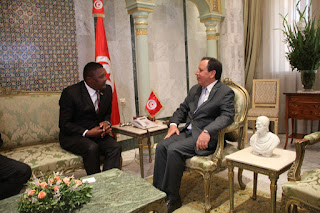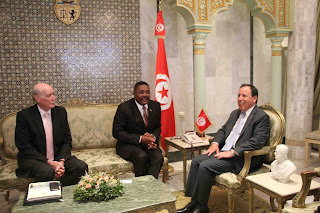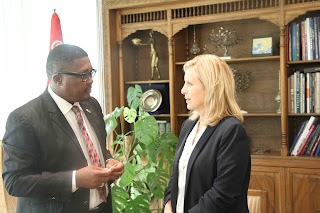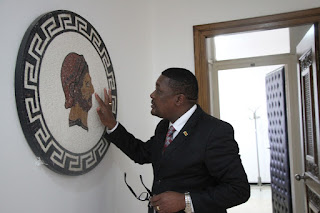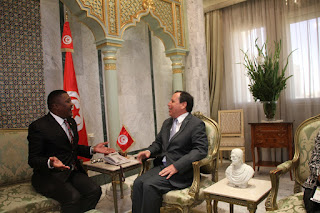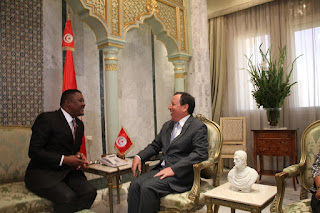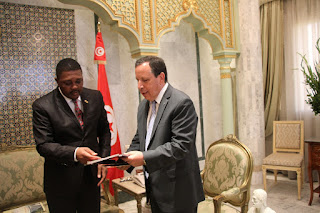
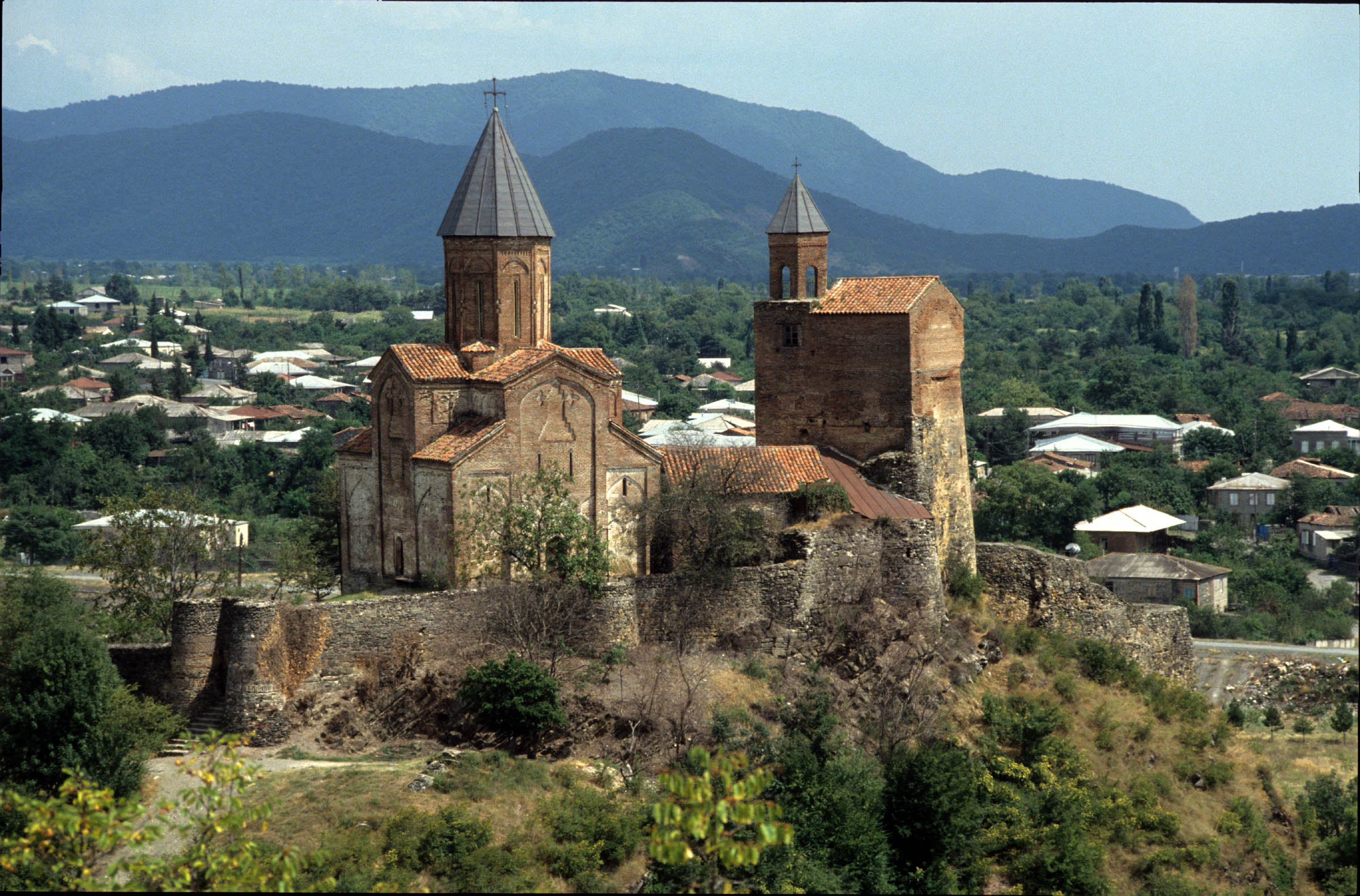
Wine Tourism – a growing tourism segment
The link between wine tourism and culture, history and lifestyle and the contribution of this segment to the development of the sector has been widely discussed during the 1st UNWTO Global Conference on Wine Tourism held in the Kahketi region in Georgia. During two days (7-9 September) the event convened over 200 participants including policy makers and tourism experts from nearly 50 countries.
In the last decade, wine tourism has become a key component of gastronomy tourism and a pillar in the strategies of diversification of many destinations. The event was a unique opportunity to discover the richness of local Georgian culture and to exchange innovative ideas to promote wine tourism between destinations already experienced in wine tourism with others with a high potential in that segment. Ministries, Destination Management Organizations (DMOS) and National Tourism Organizations (NTOs), universities, tour operators and wine professionals were among the participants.
“Wine tourism is intimately related to the identity of destinations and comprises cultural, economic and historical values. Furthermore, it constitutes a major driver in diversification strategies helping destinations to enrich the touristic offer and to attract different publics. This Conference tries not only to emphasize these but also to promote exchanges and to build cooperation among destinations with a potential in this field,” said UNWTO Secretary-General Taleb Rifai at the opening of the Conference.
“The Conference highlights one of the most cherished and eldest traditions of our culture. Wine and wine-making is an integral part of our history and identity, and has become the key element in the nation’s brand image. With this, the opportunity to host the 1st UNWTO Global Conference on Wine Tourism has once again placed Georgia in the hearts of the world’s wine experts, professionals and enthusiasts,”said Dimitry Kumsishvili, First Vice Prime Minister, Minister of Economy and Sustainable Development of Georgia:
Particular interest was raised by the presentation of the UNWTO Wine Tourism Prototype, a tool developed by the Organization that introduces an innovative methodology to evaluate the impact of wineries to the cultural, economic, social and environmental frameworks. As Yolanda Perdomo from the UNWTO Affiliate Member Programme explained “this methodological tool that can be adapted and replicated in different regions will help destinations to be promoted through their oenological framework that will also help emphasize other aspects such as culture, history and tradition.”
As an outcome of the Conference, the Georgia Declaration on Wine Tourism identifies a number of recommendations to facilitate the development of wine tourism that would help destinations to implement key actions.
“Wine tourism is a growing segment in continuous update that offers an extraordinary diversity to the consumer as well as business opportunities to producers,” said Gustavo Santos, Minister of Tourism of Argentina where the next Wine Tourism Conference will be held in 2017 (Mendoza province, second week of November).
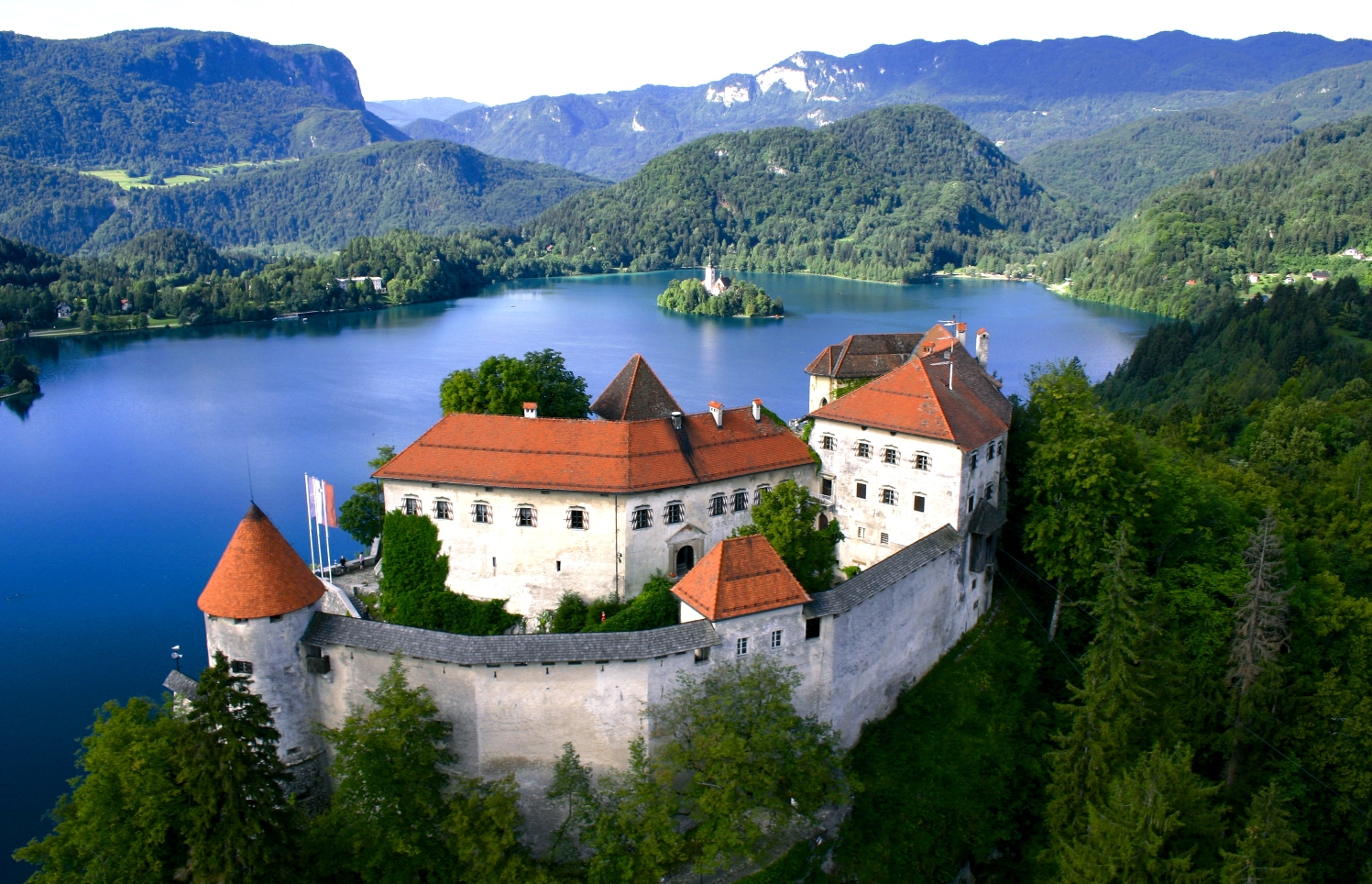
Tourism contribution to sustainable development addressed at the Bled Strategic Forum in Slovenia
“Safety, security, international cooperation and peace are key factors to ensure the sustainable development of the tourism sector,” said UNWTO Secretary-General, Taleb Rifai, at the Bled Strategic Forum, an annual meeting held in Slovenia. The occasion provided with the opportunity to present the UNWTO/World Travel & Tourism Council (WTTC) Open Letter on Travel and Tourism to Miro Cerrar, the Prime Minister of Slovenia.
The UNWTO/WTTC Open Letter calls on heads of state and government around the world to acknowledge tourism’s key role in delivering more sustained and balanced growth and prioritize the sector higher in national policies in order to maximize its potential. In the presentation of the Letter, UNWTO Secretary-General, Taleb Rifai and Gerald Lawless, Chairman of the WTTC, discussed the key factors affecting tourism development with the Slovenian Prime Minister.
“A major issue we face in our sector is that tourism is still underestimated by some leaders, particularly in its potential for job creation. My recommendation is to always include tourism in the policy agenda and consider travel facilitation as a key issue,” said UNWTO Secretary-General in the meeting with the Prime Minister.
The potential of Slovenia as a touristic destination guided the discussion and as Gerald Lawless, Chairman of WTTC, said: “Slovenia is a beautiful tourist destination. Currently, the Travel & Tourism sector contributes EUR4.9 billion to the Slovenian economy, which is 13% of the country’s GDP and supports over 13% of total employment. The Slovenian government and its people will see great further benefits from the commitment to the sustainable development of Travel & Tourism as investment in the sector will lead to higher visitor numbers and expenditure, and increased employment opportunities throughout the country”.
The contribution of tourism to the Agenda 2030 and the 17 Sustainable Development Goals (SDGs) was widely discussed in the Bled Forum. As UNWTO Secretary General stated, “it is very clear that security cannot exist without sustainability and vice versa. Indeed, tourism has never been more of an essential component of sustainable growth and stability”.
“Slovenia has become synonymous with sustainability and has also recognised the importance of cooperation in achieving sustainability and security – he mentioned – and UNWTO is convinced that in the present challenging times only by working together current concerns can be overcome and a better future is possible.”
Over the last years, the Bled Strategic Forum, has become a major incubator to debate current issues on development. In its 2016 edition the Summit has tackled tourism as a key driver for growth, job creation and environmental protection.
On the occasion, seven Slovenian companies signed the Private Sector Commitment to the Global Code of Ethics of Tourism expressing their engagement with sustainable tourism practices*.
Tourism in Slovenia
In 2015, the tourism sector in Slovenia saw a rise of 12% in the number of international tourists to reach 2.7 million. Growth was above that of Europe and the world. Revenues from exports of travel services will reach their highest level since 2008, as export growth reaches close to 10%.
Private Sector Commitment to the Global Code of Ethics
* The seven companies that signed the Global Code of Ethics in Tourism are as follows:
1 Turistična kmetija Urška
2 Hotel Park Ljubljana
3 Design rooms
4 Zavod Šouhostel
5 Kamp Koren
6 Terme Snovik – Kamnik
7 Terme Olimia
Additional information:
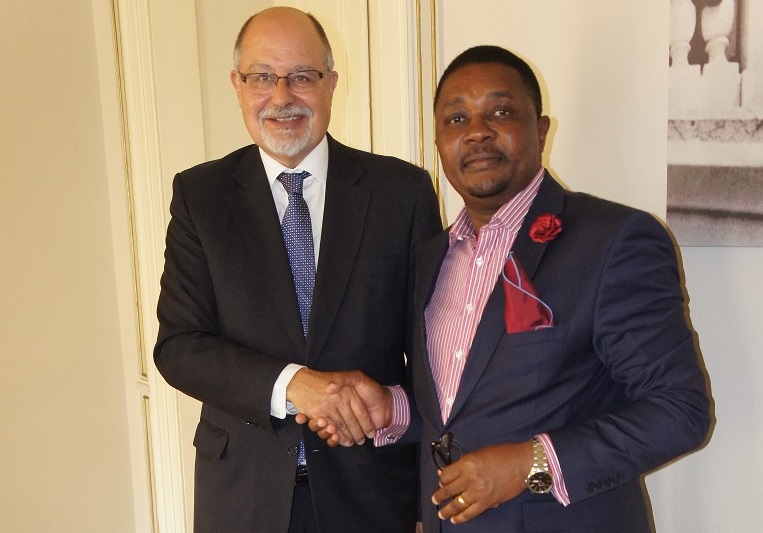
UNWTO candidate supported by the Portuguese speaking tourism world: Impressive!
UNWTO Secretary General Candidate Dr. Walter Mzembi may have just opened another door in his ambition to be called Secretary General of the United Nations World Tourism Organization. This time it was EU member country Portugal, and in a broader view the entire Portuguese speaking world.
The Zimbabwe’s Tourism and Hospitality Industry Minister is seeking the support by this European Union Country and voting member in the UNWTO Executive Council.
The current United Nations World Tourism Organization Secretary General, Mr Taleb Rifai, is due to stand down from the post at the end of 2017. Elections for his successor are due to take place when the Executive Council of the UNWTO meets in Madrid, Spain, in May 2017.
Zimbabwe’s Tourism and Hospitality Industry Minister, Dr Walter Mzembi, is in Lisbon, for meetings with senior government officials responsible for tourism policy and development of the tourism industry in Portugal.
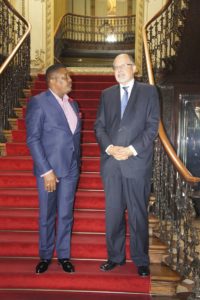
“I am here to re-connect Zimbabwe and Portugal at the level of tourism. My mission is to strengthen tourism ties between Zimbabwe and Portugal and to seek to develop strong tourism-based synergies between ourselves and the broader Portuguese speaking world”.
“With our already excellent relations with both Mozambique and Angola -fellow SADC members- and our steadily burgeoning friendship with Brazil, it is only logical that we engage Portugal, a leading European nation with long-standing, historical linkages across the globe. This includes of course the African continent, and indeed also Zimbabwe.”
Shortly after arriving in the Portuguese capital Lisbon, the Minister met with Ms Ana Mendes Godhino, Secretary of State for Tourism at her offices within the Ministry of Economy headquarters building.
Emphasizing the strong historical links between Zimbabwe and Portugal, dating back to the trading days of the Munhumutapa Empire and the excellent relations which had always existed between the two countries since Zimbabwe’s independence, the Minister and the Secretary of State concurred that there was need to build further on the existing base : and that tourism was the perfect vehicle with which to pursue this joint objective.
Tourism is currently experiencing significant growth in Portugal, as security and safety concerns continue to discourage European travelers from returning to hitherto traditional holiday destinations in various parts of the world, including a number of African destinations.
Mzembi impressed his interlocutors with the breadth of his vision, his evident knowledge of and passion for the sector and the unbridled energy he brings to the table.
It was evident from the discussions and the clear chemistry of the meetings that a strong convergence of views exists between the Minister and his Portuguese hosts with regard to the role of the UNWTO and where, moving forward, the Organization should focus its attention.
Stressing the importance of tourism as an essential component of economic development and employment creation, the Minister insisted that tourism was also an effective vehicle to build bridges between peoples of different cultures and beliefs : and a key contributor, therefore, to the promotion and maintenance of global peace.
In a separate meeting with Dr Luis Manuel Patrao, National Secretary for Administration of the governing Socialist Party and a former President of the Portuguese National Tourism Board, Dr Mzembi outlined his vision for the future development of the global tourism industry under the umbrella of the UNWTO.
Paying glowing tribute to the leadership and “enormous contribution” of incumbent Secretary General, Mr Taleb Rifai, Dr Mzembi said his intention, if elected to the post, would be, “to build upon Taleb’s enduring legacy”, and to work tirelessly to ensure that the UNWTO is accorded the recognition it fully merits within the family of UN specialized agencies.
Dr Mzembi noted the expectation of UNWTO member states that, in addition to the technical advice and support provided by the Organization, it could be doing more to foster development of the tourism sector in member countries. In this regard, innovative approaches and identifying effective synergy with other, better resourced developmental agencies of the UN family could provide a workable way forward towards meeting some of those expectations.
“Given the serious challenges which confront tourism today, most specifically the threat of terrorism, which, in recent times, has deliberately targeted tourists and tourist destinations, and from which none of us is immune. It is important, if we are to effectively address that issue and to come up with effective solutions, that those major players should be at the table and participate in the search for an appropriate and effective response.”
With this remark, Mzembi stressed the importance of growing UNWTO’s membership from the current level of 157 to match that of the United Nations itself. “ We need to aim for universality of membership and to reach out to important global players who are not members of the UNWTO, countries such as the United States, the United Kingdom and Canada. They should very seriously consider joining us”.
“Hard power responses are probably unavoidable, for sure, but soft power responses, by way of tourism promotion and building understanding and tolerance between and among people, is a valid contribution to the search for a lasting solution”.
Dr Mzembi emphasized the need to broader the current definition of “security” as it relates to the tourism industry, to include issues such as natural disasters, health pandemics and the effects of climate change – which, he noted, often impacted more heavily than terror in terms of lives lost.
“I’m really impressed”, said Secretary of State Ana Mendes Godhino.
During the two meetings, a clear convergence of views emerged on the state of global tourism and on the role of the UNWTO in addressing the challenges currently confronting the industry.
Ms Godinho informed the Minister that, in 2015, tourist arrivals in Portugal are likely to surpass the 10 million mark. Tourism already accounts for 10% of national GDP, contributing some US$ 16 billion to the economy. 8% of total employment in Portugal can be accounted to the travel and tourism industry.
The Portuguese government is finalizing a second 10 year Tourism Development Plan, to run from 2017 to 2026, which is expected to see the tourism sector become an even more important player within the overall national economy.
“We in Zimbabwe can learn from Portuguese experience and expertise in the field of tourism development. And we can certainly benefit from your specialized tourism training and language training institutes”, Dr Mzembi told the Secretary of State.
Dr Mzembi praised the Portuguese community in Zimbabwe for their solidarity with the government of Zimbabwe and for their efforts to actively promote Portuguese culture, art, music and cuisine within Zimbabwe.
“We want to work more closely with the community in Zimbabwe in their activities as an important component of our efforts to strengthen relations with Portugal and with the wider lusophone world”, said Dr Mzembi.
The Ministers agreed to expedite the finalization and signature of a bilateral Memorandum of Cooperation to give practical effect to their common determination to deepen cooperation between the two countries in the tourism sector.
From Lisbon, Dr Mzembi flies to France – another key member of the UNWTO Executive Council – for meetings with senior tourism officials of the French government.
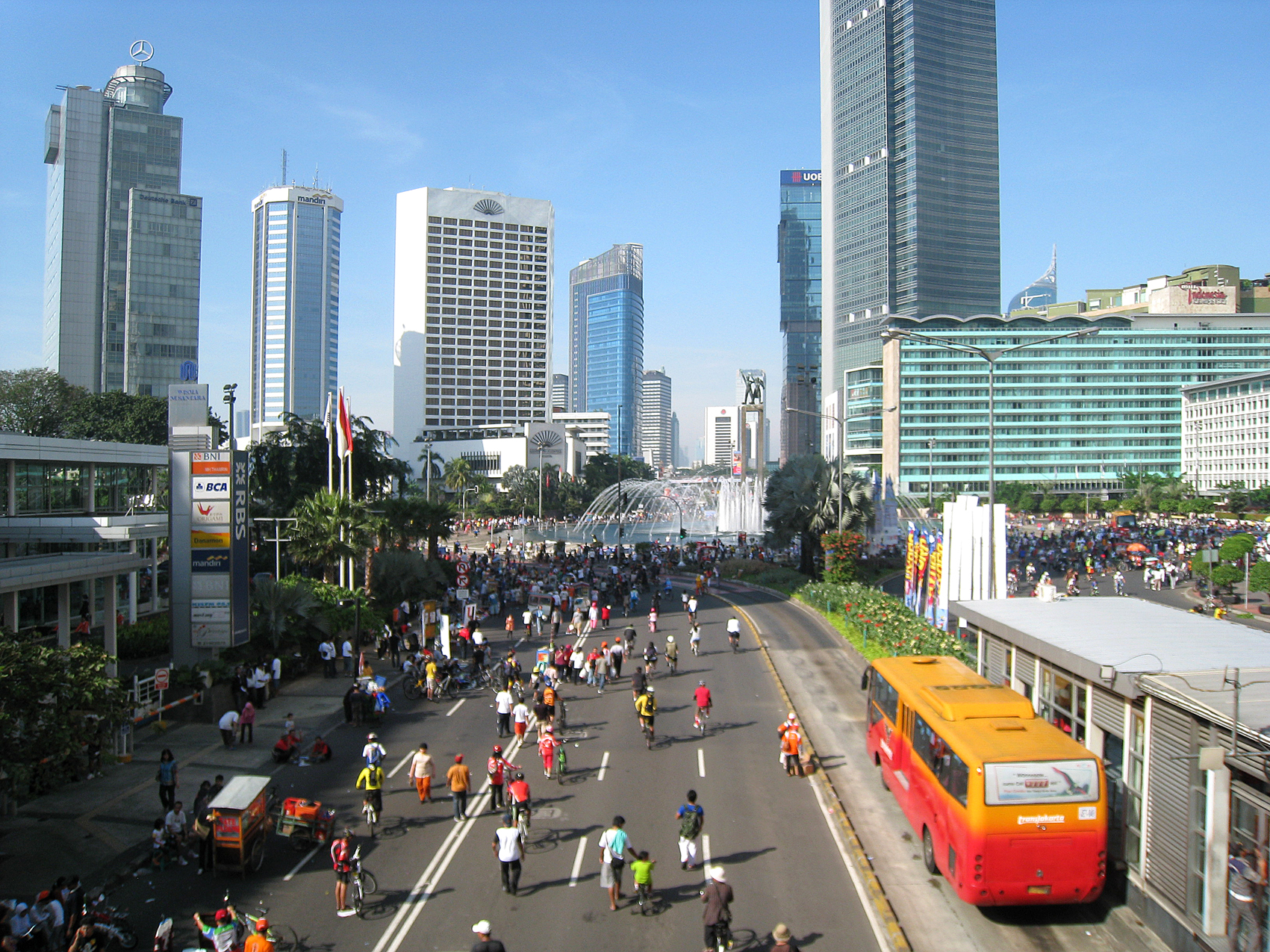
Indonesia Sustainable Tourism Observatories join the UNWTO Network
Indonesia has joined the UNWTO International Network of Sustainable Tourism Observatories (INSTO) with the opening of three sustainable tourism observatories, as announced at the PATA Travel Mart 2016 in Jakarta, which position Indonesia as a regional hub for sustainable tourism practices.
The observatories, located in the regions of Sesaot, Senggigi Lombok Barat, Pangandaran and Sleman, will be hosted by the Bandung Institute of Technology, Gadjah Mada University and the Mataram University. The newly created bodies will monitor and ensure sustainable practices of the tourism sector in these regions. They will be looking for examples of evidence-based decision making and timely measurement and management of resources and activities, each indispensable factors of sustainable tourism development.
Together with the opening of the three observatories, Indonesia has endorsed 20 regions to test pilot sustainable tourism projects and chosen ten priority destinations for the projects. “The more we preserve, the more prosperous we become,” said Arief Yahya, Minister of Tourism of Indonesia. “These observatories will contribute to Indonesia’s sustainable practices in other fields,” he added.
UNWTO Secretary-General Taleb Rifai welcomed Indonesia’s strong commitment to sustainable tourism: “Institutional support is essential to ensure the sustainable development of the tourism sector and Indonesia is exemplary in coordinating all stakeholders to make these observatories a reality.”
The establishment of the three observatories in Indonesia is timely, coming only a few months before the International Year of Sustainable Tourism for Development is launched in January 2017. During the celebrations the observatories will be prominently featured as crucial elements for ensuring the sustainable development of the tourism sector.
INSTO provides a framework for the regular gathering, analysis and communication of information on tourism’s environmental, social and economic impacts in destinations. Currently, the Network includes a total of 14 observatories (eight in China, three in Indonesia, one in Greece, one in Mexico and one in Brazil).
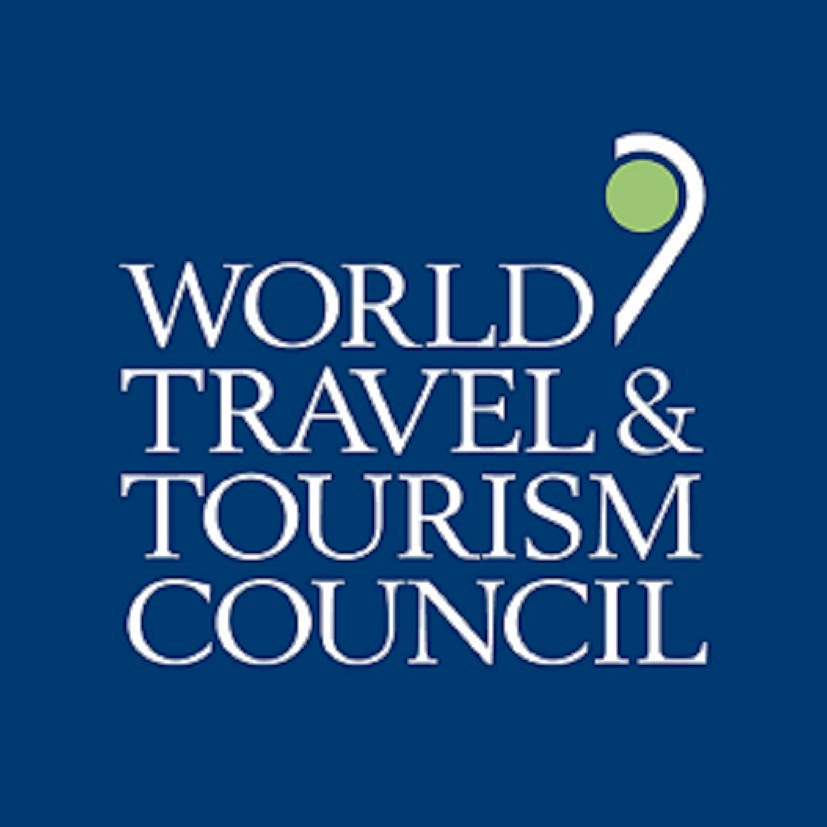
WTTC challenges tourism businesses to show how sustainable they are
The World Travel & Tourism Council (WTTC) challenges Travel & Tourism organisations to show how sustainable they are by entering their sustainable business initiatives for the Tourism for Tomorrow Awards 2017.
David Scowsill, President & CEO, WTTC said: ?I am pleased to announce that the twenty-eighth annual Tourism for Tomorrow Awards programme is now open for entries. Through the Tourism for Tomorrow Awards 2017 we shall highlight the commitment of the Travel & Tourism sector to the Sustainable Development Goals adopted by all 193 Member States of the United Nations in September 2015.
Companies and organisations that enter for these awards can show governments and other tourism organisations how growth and successful business models go hand in hand with the safeguarding of local communities, the environment and cultural heritage.?
Fiona Jeffery OBE, former Chairman of World Travel Market and Founder and Chairman of the international water aid charity Just a Drop, will be chairing the Awards for the third time. She commented: ?Tourism is a force for good, it connects people from different cultural backgrounds and environments. The WTTC Tourism for Tomorrow Awards celebrate the achievements of ethical tourism businesses around the world that look to give back to local communities by enhancing livelihoods where they operate and protecting the environment and cultural traditions to ensure a sustainable world for the future.?
I am delighted to be chairing again, and hope to again see many inspirational businesses apply for the 2017 programme.?
AIG Travel, Inc., the travel insurance and global assistance division of leading international insurance organisation American International Group, Inc., will be the Official Headline Sponsor of the Awards programme for the second year.
Jeff Rutledge, CEO, AIG Travel, Inc., said: ?AIG is committed to furthering the sustainability efforts of the Travel & Tourism industry, and we are honored to continue our support of the Tourism for Tomorrow Awards in 2017. Through education and the sharing of best practices, I am confident we can all make a difference by implementing eco-friendly business processes.?
Lead judge, Professor Graham Miller, chair in sustainability in business at the University of Surrey, will oversee a rigorous independent judging and on-site evaluation process carried out by an international panel of experts, representing academia, non-profit organisations, government and the private sector.
This year applicants can enter in the following five categories: Community; Destination; Environment; Innovation; and People.
The 2017 Finalists will be announced in January 2016 and the winners will be announced during the WTTC Global Summit 2017 in Bangkok, 26-27 April 2017.
The 2016 award winners were; Community Award: Expediciones Sierra Norte, Mexico; Destination Award: Parkstad Limburg, Netherlands; Environment Award: The Botswana Rhino Conservation Project by Wilderness Safaris, Botswana; Innovation Award: Carmacal Carbon Calculator by ANVR – The Netherlands Travel Trade Association, Netherlands; People Award: Youth Career Initiative, United Kingdom & worldwide
Award applicants can submit an application online via http://wttc.org/tourism-for-tomorrow-awards/apply/ Entries open today and the closing date is 14 November 2016.
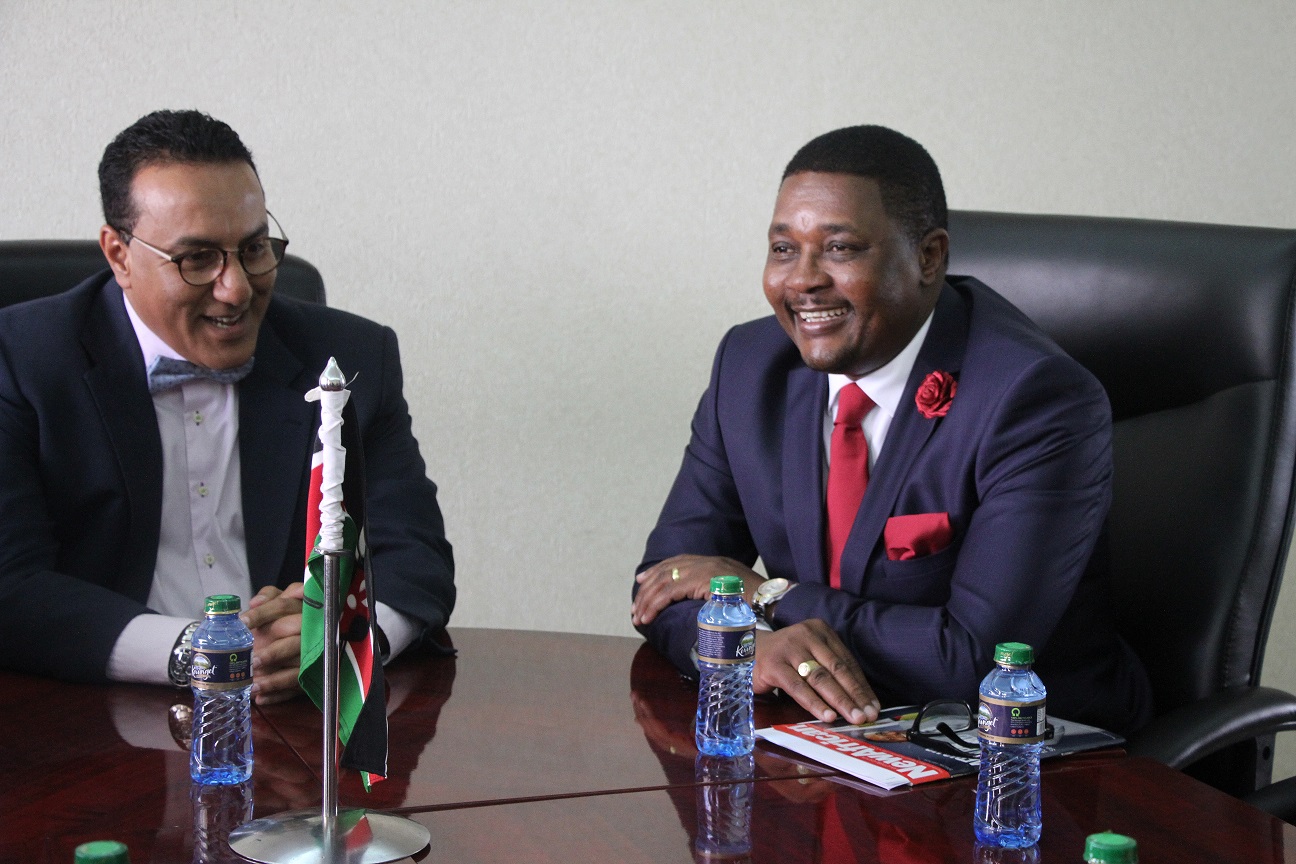
UNWTO Campaign reaches out to Executive Council member Kenya for support
On the final leg of his latest UNWTO campaign tour, Zimbabwe Tourism and Hospitality Industry Minister, Dr Walter Mzembi, arrived in Nairobi, Kenya, for comprehensive discussions with his Kenyan counterpart, Hon Najib Balala.
Kenya is a member of the UNWTO Executive Council and will be one of 32 Council members to vote for the next Secretary General of the UNWTO when the Council meets in Madrid, Spain, in May 2017.
The Minister’s visit to Kenya follows in the wake of the letter sent by His Excellency President Robert Mugabe to all African Heads of State – including His Excellency President Uhuru Kenyatta – seeking their support for Dr Mzembi’s candidature, and the subsequent unanimous endorsement of that candidature by the African Union Summit meeting held in Kigali, Rwanda, in July this year.
Dr Mzembi expressed his gratitude to the Minister and, through him, to His Excellency the President for their support and stressed that if Africa is to realize its ambition to head the UNWTO – the first time in the history of the Organisation – the continent will need to remain united and committed in its support for the AU-endorsed candidate.

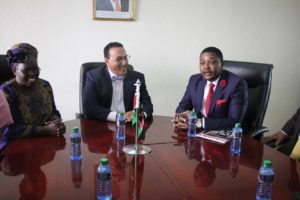
The ministers agreed to remain in close contact going forward and to intensify their cooperation both at bilateral and continental level as well as within the broader UNWTO framework.
At a bilateral level, the Ministers acknowledged that Zimbabwe and Kenya are natural cooperating partners in the tourism sector, and committed themselves to finalise an enabling bilateral Memorandum of Cooperation before the end of 2016.
Apart from intensifying the promotion of tourism between the two countries, the ministers agreed to investigate the possibility of enhanced cooperation in terms of existing air-links and related services between Zimbabwe and Kenya
Enhanced cooperation in the joint promotion of international conferences was also discussed. Within this context, Dr Mzembi highlighted the possibilities for Kenyan investment and cooperation in the development of modern convention and conference facilities in the Victoria Falls Special Economic Zone.
The meeting ended with the Ministers agreeing that Dr Mzembi would visit Kenya again in the near future in order to continue dialogue about enhancing bilateral tourism links and to share views on the future of global tourism under the umbrella of the UNWTO.
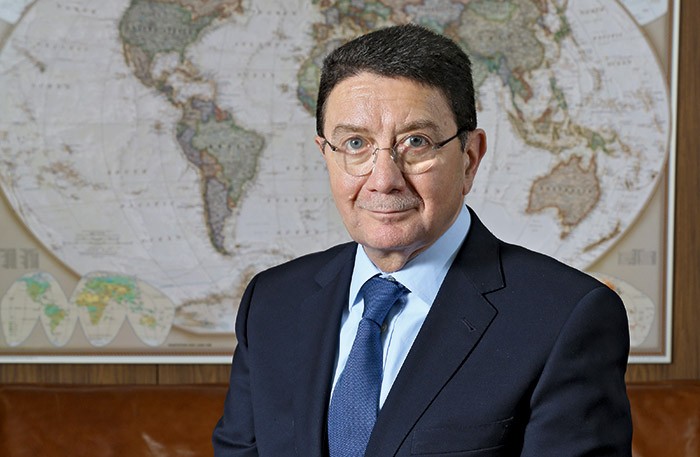
Taleb Rifai speaks out on terrorism and tourism safety
Taleb Rifai, secretary-general of the World Tourism Organization, was interviewed by Elena Sevillano, a journalist based in Madrid, home of UNWTO.
Elena points out Taleb Rifai believes the best way to respond to terrorists is to continue visiting the attacked countries.
In the exclusive interview Elena Sevillano speaks about safety, terrorism, all very real issues facing the global travel and tourism industry. Terror has made tourism to their number one target and enemy.
Jordan’s Taleb Rifai (1949), secretary-general of the World Tourism Organization (UNWTO), takes advantage of every opportunity to highlight the role of tourism as a catalyst for development and a source of wealth. In Sri Lanka, where this interview was held, Rifai stressed how this industry even helps to heal the wounds of conflict such as that experienced by this Asian country as recently as just seven years ago. The conversation, however, drifted towards what is perhaps the greatest current threat faced by the sector: terrorism.
It had been a couple of weeks since the attack at the Turkish airport; the attack in Nice occurred the day after the interview.
Question: Tourists could not go to entire areas in Sri Lanka until 2009 because of the war. How do you open up a country to tourism after a conflict?
In Asia, Vietnam and Cambodia are great examples. I am from the generation that grew up with the Vietnam War and the atrocities in Cambodia, the bloody conflict that gripped the country for so many years. No one could imagine at the time that today Vietnam and Cambodia are associated only with beautiful things. It’s amazing and it was tourism that made it happen. In Eastern Europe, we have the example of Croatia and Slovenia. Croatia was at the centre of a civil war when Yugoslavia was dissolved in the 1990s. Today it receives 12 million tourists. Today, only beaches and beautiful places come to mind: not a trace of the war.
Q: Tourists seek safety when travelling. How do you manage to transform the image as an unsafe place of a country that has suffered a war or an attack?
I always say that what matters, what is most important, is political will. If the government decides that tourism is a good thing for the country, it will go in that direction. It will work. There is no completely safe country in the world. Anything can happen anywhere. That is why the issue of security is a consideration, of course, but it is not all that is on the table. When you travel you think about how expensive, how beautiful or how attractive a place is, what experiences I’ll take back with me and also about safety. It does not determine whether you go or not. They can kill or rob you on the streets of the safest cities in the world. It should not be something that prevents destinations from promoting themselves.
Q: It is true that today something bad can happen around every corner, but now there are countries that appear regularly in the media as targets of terrorist attacks. Think of Egypt, Tunisia, Turkey. How does it affect their tourism industry and their economy?
No country should be classified as safe or unsafe forever, because anything can happen anywhere. It is a global malady.
Q: But travellers do.
That is why we must ask them to please not make that classification. Because today security is no longer something you can guarantee.
Q: Going back to these countries. It must be difficult to fight against the stigma.
Yes, unfortunately some of them have been attacked more than once and seem to have become targets of some of these terrorist groups. The effect has been always been dramatic and immediate. When something happens in a country, people stop going, but it’s a short period. Experience shows us that recovery is quick, especially in countries with a long history and experience in welcoming travellers. Turkey, Egypt, Tunisia. Does it affect them? Of course it affects them. For how long depends on them. The recovery process can be really fast. Egypt has been a tourist destination for 7000-8000 years. That may change for a few months or a few years, but it will come back.
Q: Is there an example of good practice after such an event?
: What happened in Turkey a few weeks ago was highly significant. When Ataturk Airport was attacked, two things happened that give food for thought. The Turkish authorities put the airport into operation in 8 hours, as active as ever. It was an excellent example. If you compare it to other incidents, airports were closed for days, weeks. That’s a good way to respond to terrorists. You want to hurt us? You will not succeed. We are operational in less than 24 hours. Determination and political will are key.
Russia’s reaction. We are accustomed to traditional tourism generating countries that immediately impose travel restrictions. Germany, England, France, Russia, Sweden. They tell their nationals: don’t travel to these areas. Russia did exactly the opposite. That same afternoon it lifted the ban and said we want our citizens to travel there.
Q: So, is that what needs to be done then?
: It is the best way to respond. Because—think about it—that’s what the terrorists want. They attack airports, hotels, beaches, restaurants… They attack tourist infrastructure, like it or not, because they know that is where it hurts. They cause economic and political damage because they damage the country’s image. When they do it, they expect people to stop travelling to Turkey or Egypt. So the only way to defeat them is to continue travelling to those countries. Send the message that we are back in operation. In fact, the places that have been attacked are the safest in the world right after because security is even greater. To countries I say: Please do not rush to issue advisories against tourism. Let’s not fall into that trap.
Q: Has the perception of insecurity following the attacks contributed to the tourism records of Spain?
A: I don’t agree with that approach. Our figures prove that what we are assuming, that Spain benefits from the misfortunes of others, is not correct. All the tourists lost in the three countries are no more than 2.5 million. If they all decided to go to Spain, which is impossible because they go to other places it still would not explain the growth, which is three times higher. Yes, there may be an effect, but it is not factor in why tourism is growing in Spain. To assume that Spain is doing well because others are doing poorly is unfair to Spain. Spain is performing well because it is doing a good job, not because others are suffering. Perhaps 10% or 15% of the tourists of these countries may go to Spain, but that does not explain the increase.
Q: Can we handle so much tourism? Barcelona has warned on several occasions that it has trouble managing it. Why?
First of all, you cannot say no to tourism. I think in Barcelona sufficient efforts are not being made. As a tourism destination, you have to create other attractions that pull tourists from the city centre, give them alternatives, create new destinations. Barcelona can do better, and I hope this is not understood as a criticism.
Q: How is Ana Botella working in your organization after you took her on board?
Very well. She is a very active person and did a lot for the tourism sector when she was mayor. I did not recruit her due to political affinities but rather for her enormous experience.
: Has she already produced a report?
Yes, and she is preparing a meeting of the network of mayors of tourism cities.
“We live in the era of travel,” you said at the conference in Sri Lanka. How does that translate into figures?
In 1950, after the end of World War II, and when the world was beginning to go back to normality, there were only 25 million international travellers crossing borders, according to our data. In 2015 we counted 1.184 billion. We are talking about 65 years over which we can see how much the number of travellers has multiplied. It’s tremendous. People are defying borders and travelling more and more. And it is not just the numbers, it’s the places. There is no longer any place that people do not travel to. We travel to the North Pole, the South Pole, the Amazon, deserts. The world has opened up in an incredible way. And it happened so fast that we are still adapting. It is something like what happened with the industrial revolution, 200-250 years ago. People were not aware of living in that era until a hundred years later. I am sure that in 40, 50, 60 years people will look back and characterize our time as the era of travel.
I think, historically, this is the time for people to move. Before, it was things that moved, trade was created, after that capital moved, with the creation of financial institutions, then information, now is the time for people to physically move, which is why I call it the era of travel.
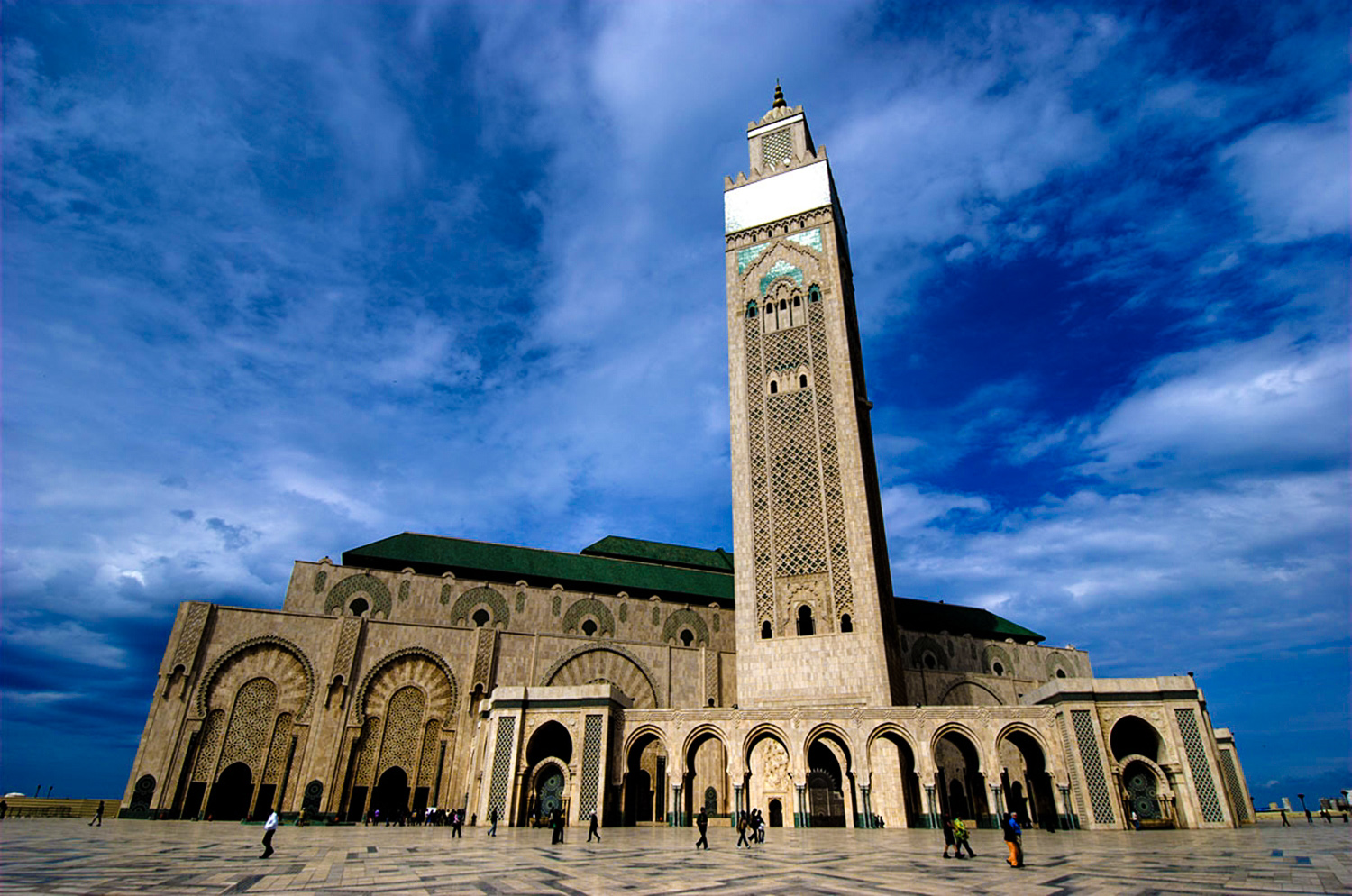
Taking Morocco Tourism to the next level
The Morocco Ministry of Tourism is hard at work creating a strong foundation for its industry. From accommodations to travel agencies, from tour guides to regulations, every link is being forged into a strong tourism value chain.
The Tourism Minister of Morocco, Lahcen Haddad, is rising up to meet the changing desires of tourists and their expectations in the areas of technology, social media, and cultural/eco-tourism offerings. To meet these challenges, Vision 2020 sets out a map to achieve innovative and competitive tourism for the country.
Support and guidance
The Tourism Ministry is providing support and guidance so as to benefit from financial support mechanisms, technically-designed and tailor-made to meet the development needs of tourist facilities. By setting a reference standard, this provides a marker to follow and improve the quality of services.
Tourism stakeholders are able to enjoy a personalized agenda, and pick labels and certifications that are adapted to enhance the attractiveness and strengthen their particular market position. They benefit from a coaching ground for any renovation, expansion, or upgrading of a tourist establishment.
Synergy and cohesion
Tourism representatives can also take advantage of the synergy and cohesion of membership benefits to the National Federation of Hotel Industry and Industry Regional Associations Hoteliere and exchange experiences with industry professionals. Through networking opportunities, they receive coaching and mentoring, and have a good representation of themselves to present before public bodies.
The year 2020 may sound far off into the future, but in reality, it is just three-and-a-half years away from now. As the Morocco Ministry of Tourism continues to roll out Vision 2020, it is moving forward and taking Morocco tourism to the next level.

UNWTO Africa Chair Mzembi reaches out to Italy’s minister of cultural heritage and tourism
The earthquake today was very much a shock and strike against the travel and tourism industry in Italy during the peak of their high season travel period.
The outspoken candidate circling the Earth to become the next UNWTO secretary general is showing global leadership again today. Walter Mzembi, who also is the current chair for the UNWTO Commission for Africa (CAF) took the initiative while attending an event in Kenya to reach out to the people of Italy and their tourism industry leaders.
He had a letter delivered to His Excellency Dr. Dario Franceschini today, following the devastating earthquake claiming more than 120 lives in Central Italy.
The letter reads:
His Excellency Dr Dario Franceschini
Minister of Culture and Tourism
Ministry of Culture and Tourism
Via dell Collegio Romano
27 Roma 00186
ITALY
Your Excellency,
I write, on behalf of all members of the UNWTO Commission for Africa (CAF) – which I have the honour to Chair – to extend to you our collective heartfelt sympathy and most sincere condolences for the tragic loss of life and terrible injuries inflicted upon the Community of Amatrice and many other towns and villages within the Umbria region of Central Italy, following the devastating earthquake of 23 August.
No words can bring adequate comfort to those who have lost loved ones or whose homes and livelihoods have been destroyed by this disaster, but please know that you are all in our thoughts and prayers at this most challenging and difficult of times.
You will recall, Excellency, during the 60th Regional Commission for Europe, I highlighted, on behalf of Africa, the need to expand the definition of insecurity to include natural disasters of different kinds prevalent in our different regions – which often claim more lives than conventional threats such as terrorism – and, in this regard, the need for us to adopt a holistic mitigation strategy.
In the hope of meeting you again in the near future and of continuing our discussion on the search for effective mitigation solutions, I once again extend my deepest condolences and sympathies to all those affected by the recent earthquake.
Please also accept, Excellency, my most sincere best wishes.
Yours faithfully,
Walter Mzembi (Phd)
Minister of Tourism and the Hospitality Industry
Republic of Zimbabwe
Chairperson
UNWTO Commission for Africa
c.c. Her Excellency Dr Dorina Bianchi
Deputy Minister of Culture and Tourism
Ministry of Culture and Tourism
Rome – Italy
c.c. His Excellency Dr Enrico de Agostini
Ambassador of the Republic of Italy
Harare – Zimbabwe
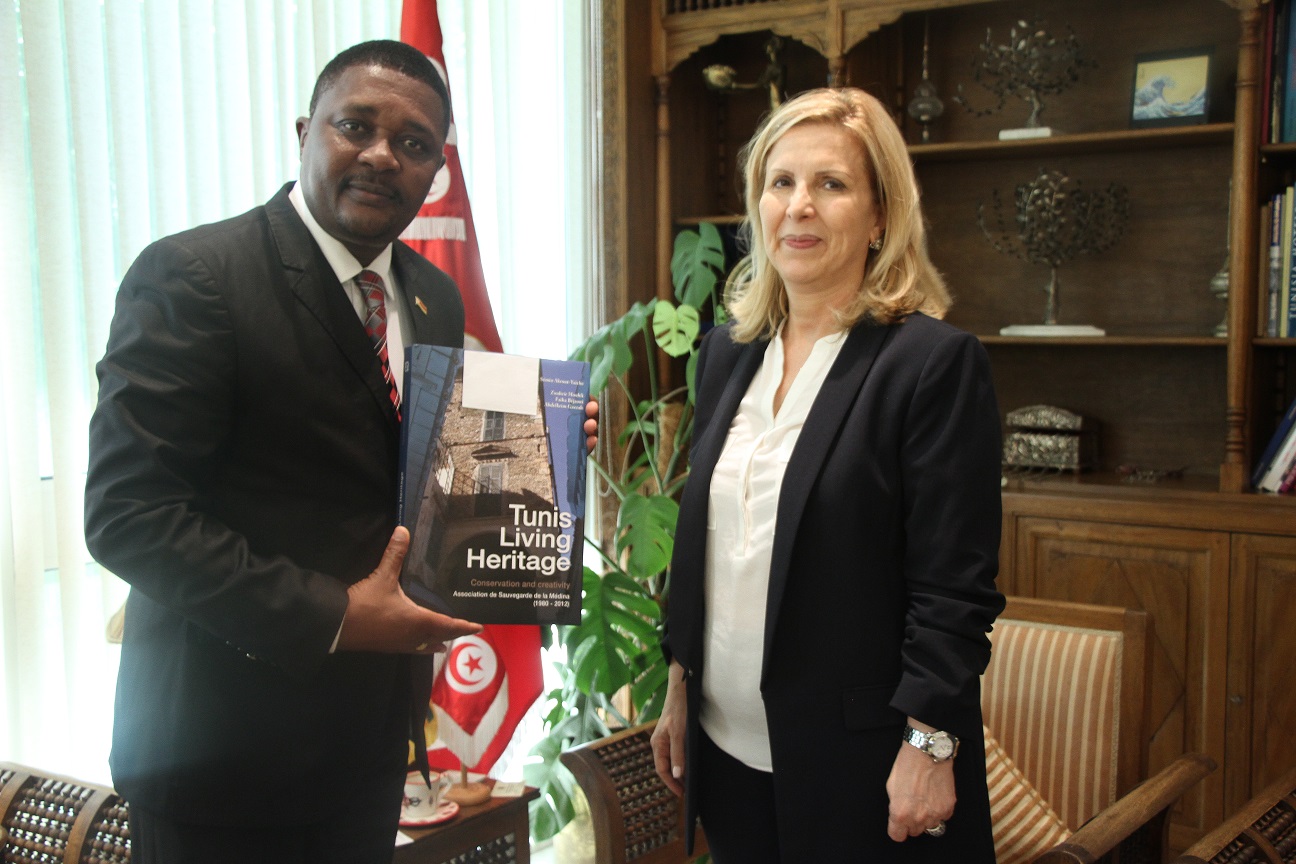
UNWTO candidate Mzembi leaves Tunisia deeply impressed
Tunisia is deeply impressed by Mzembi’s vision for global tourism development.
Hot on the heels of his successful two-and-a-half-day visit to Egypt earlier this week, Zimbabwe Tourism Minister Walter Mzembi has brought his UNWTO campaign effort to Tunis, capital city of the Republic of Tunisia – the latest stage of his current outreach program.
Like Egypt, Tunisia is also a member of the UNWTO Executive Council. Its support, therefore, will be crucial come election-day in May 2017, when the Council gathers in Madrid, Spain, to decide who will become the next Secretary General of the organization when the incumbent, Dr. Taleb Rifai a Jordanian national, stands down.
Warmly welcomed by his Tunisian hosts, Dr. Mzembi first met with the Minister of Foreign Affairs, Mr. Khemais Jhinaoui, who was accompanied by senior officials from the Political and Economic Affairs Departments of the Ministry.
Tracing the evolution of the fraternal relationship which exists between Tunisia and Zimbabwe, Minister Jhinaoui expressed his delight at receiving Dr. Mzembi and welcomed the opportunity for a detailed exchange of views focusing on how the two countries could work together in the future to further strengthen already existing ties, including the tourism sector.
Minister Jhinaoui congratulated Dr. Mzembi on the progress made thus far with regard to his bid to secure the post of Secretary General of the UN World Tourism Organization, and noted the strong boost given to that bid by the recent AU-Summit endorsement of his candidature.
Minister Mzembi gave a detailed presentation of his vision for the future trajectory of the UNWTO should he be elected to the post of Secretary General. Both ministers agreed on the positive impact his election would have, not only in terms of mainstreaming tourism within the continental African development agenda but, more broadly, in terms of injecting fresh impetus and focus on addressing the serious challenges which, today, confront the global tourism industry.
Minister Jhinaoui complimented Dr. Mzembi for the depth and clarity of his vision and for the evident passion and dynamism underpinning that vision. He said he would immediately share the substance of their discussion with the Tunisian Prime Minister and the Head of State, His Excellency, President Beji Caid Essebsi.
The two ministers agreed to keep in close contact as the UNWTO election process enters the formal nomination phase, leading towards the primary vote to be cast by the by the 32 Executive Council members when they meet in Madrid, Spain, in May 2017.
Later in the day, Hon. Minister Mzembi met with his Tunisian counterpart, Ms. Salma Elloumi Rekik, the Minister of Tourism and Handicrafts.
He warmly congratulated her on her re-appointment, just the previous day, to the Tourism and Handicrafts portfolio – the first African colleague to do so.
The two ministers agreed that every effort should be made to pursue the path of greater cooperation between Tunisia and Zimbabwe, in the tourism sector. As an immediate next step and so as to set out a concrete basis for such intensified cooperation in the sector, the ministers agreed to rapidly finalize the Memorandum of Understanding (MOU) they originally initiated in 2014.
The ministers then held detailed discussions on the current status of global tourism, highlighting the various challenges which confront the industry today and agreeing on the important role UNWTO must continue to play in mobilizing and coordinating the international response to those challenges.
The ministers spoke at length about the current and future development of tourism on the African continent and of the need for African countries to intensify their efforts, at the national, regional, and continental level, to ensure that in each country and, more broadly, within the AU’s Agenda 2063, “Tourism” is accorded its rightful status as a powerful engine for rapid, effective socio-economic development across the continent.
With specific regard to Tunisia, the ministers noted the serious impact recent terror attacks and the resultant heavily negative travel advisories had had upon foreign tourist arrivals, especially from Tunisia’s traditional source markets in western Europe.
Dr. Mzembi agreed that finding an effective approach to the issue of tourism and security was absolutely essential to the future well-being and development of global tourism. It counts not only as a vehicle for more inclusive socio-economic development, but as an effective tool to build bridges between peoples and cultures, to promote greater international understanding, and to contribute towards global peace and harmony.
“In order to fulfill its true destiny, UNWTO needs to be fully universal in terms of its membership. A number of major players remain outside the organization. We need them inside with us, especially if we are serious about promoting a meaningful discussion and seeking effective solutions to the burning issue of the day – that of tourism and security and related issues such as unilateral, unfair, and often excessive travel advisories which can have a devastating effect upon tourism, especially in developing countries,” said Minister Mzembi.
Minister Rekik expressed her appreciation for the vision outlined by the mercurial engineer in terms of the development of the global tourism industry and confided that her colleague, the Foreign Minister of Tunisia, had telephoned her immediately after his meeting with him to record how impressed he had been with the clarity and farsightedness of the minister’s vision, should he be elected to the post of Secretary General, to continue and build upon the fine legacy of Mr. Taleb Rifai.
From Tunis, Hon. Minister Mzembi travels to Nairobi, Kenya, venue for the 6th Tokyo International Conference on African Development (TICAD VI) where he will have an opportunity to engage and interact with a range of African Heads of Delegation as well as with senior officials of the Japanese Government.
Held every three years and alternating between Japan and the African continent, the TICAD forums provide an opportunity for African leaders to engage directly with the political leadership of Japan and, in coordination with the African Union Commission, the UNDP and the World Bank. All of them are TICAD co-organizers. The minister is seeking to align Japanese development support and, wherever feasible, Japanese private sector engagement (itself often supported by or supplemented by Japanese Government funding) with Africa’s agreed continental development agenda(s) across a variety of sectors.
Since TICAD IV (Yokohama, 2008), tourism development has been a sub-pillar of Japan’s broad cooperation matrix with African countries.
Japan, like China and a number of other Asian countries, is actively promoting out-bound tourism and, via institutions such as the Japan Tourism Agency and JATA, is seeking new, secure and safe travel destinations for its nationals. Africa certainly features in Japan’s considerations, and TICAD provides an appropriate and effective platform for a collaborative dialogue towards realiing the undoubted potential of greater tourism exchanges between Japan and Africa.
Zimbabwe, which already benefits from a steady flow of tourist arrivals from Japan, albeit almost entirely focused on the Victoria Falls, is well placed to take advantage of Japan’s focus on out-bound tourism and the possibilities of enhanced Japanese financial and technical support, via TICAD, for tourism development.
In addition to seeking the endorsement of the Japanese Government for his UNWTO election bid, Hon. Minister Mzembi will be seeking to encourage further Japanese tourist travel to Zimbabwe.
With its impressive and varied tourist product and given the general peace and tranquillity which prevails across the entire country, and given also the burgeoning relationship between Japan and Zimbabwe – evidenced by the invitation extended by Prime Minister Shinzo Abe to His Excellency President R.G. Mugabe, to make an official visit to Japan in March this year – it is expected that this third and final leg of Dr. Mzembi’s current travels will prove to be as successful as the first two have been.


